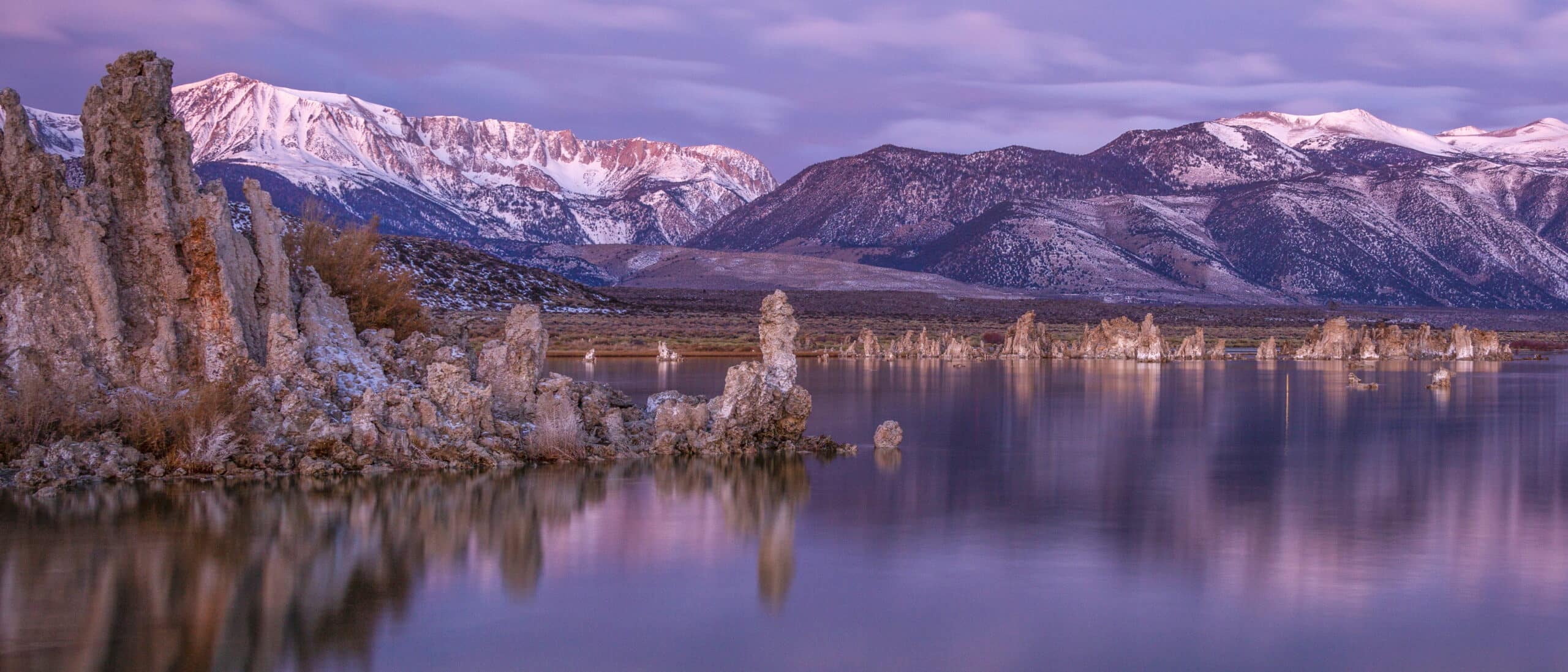
Action alert
The Lahontan Regional Water Quality Control Board (Lahontan) is advancing the Mono Basin Tribal Beneficial Uses Designation Project. This designation will recognize the important uses of Mono Lake and its tributary streams by Indigenous Peoples since time immemorial.
This project proposes to amend the Water Quality Control Plan for the Lahontan Region to designate Tribal Beneficial Uses (TBU) for Mono Lake and its tributary streams. Lahontan states that designation “serves to acknowledge and highlight the need to maintain water quality sufficient to protect Tribal cultural and Tribal subsistence uses of waterbodies in the Mono Basin” and adds that “completion of this project will advance efforts towards racial equity.”
The Mono Lake Committee views this proposed action as an important recognition of the Kootzaduka’a Tribe’s heritage in the Mono Basin and an affirmation of the importance of Mono Lake.
Lahontan is accepting public comments, and your letter of support will make a difference.
Background on Lahontan’s Tribal Beneficial Use designation
In 2021 the Mono Lake Kootzaduka’a Tribe reached out to the Lahontan Regional Water Quality Control Board (Lahontan) and requested Tribal Beneficial Use (TBU) designations for Mono Lake and its tributary streams. Lahontan is the one of nine regional water boards in California under the State Water Board. Lahontan is responsible for water quality control under the Clean Water Act in the region that extends roughly east of the Sierra from the Oregon border to the Mojave Desert.
The Tribe’s request initiated a multi-year process that involved research, public scoping, outreach, and formal consultation with the Mono Lake Kootzaduka’a Tribe, the Bridgeport Indian Colony, Bishop Paiute Tribe, Big Pine Paiute Tribe, Lone Pine Paiute Shoshone Tribe, and other tribes in the region. In March Lahontan staff released a draft proposal designating TBUs for Mono Lake and its tributary streams. The proposed TBU designations for Mono Lake and its tributary streams are the first to be considered under a 2017 State Water Board resolution recognizing Tribal Beneficial Uses and providing for their designation across the state.
Lahontan is accepting written comments on the TBU proposal through April 30 at noon. If adopted, Mono Lake and tributary streams will be officially recognized for their value to the indigenous people of the Mono Basin. The Tribal Beneficial Use designation will be added to other identified beneficial uses that are protected under the Clean Water Act. In the Mono Basin, those other beneficial uses include navigation, commercial or sportfishing, wildlife habitat, agricultural use, hydropower generation, municipal supply, recreation, and others. Each waterbody in the state has designated uses and accompanying water quality criteria that protect the specific use.
What does TBU designation mean for the Mono Lake Kootzaduka’a Tribe?
In the words of the Kootzaduka’a Tribe:
“Ensuring that Mono Lake is protected now and for the future is essential. Our heritage is tied up in these places. If the streams are not protected, if things like the kootzabe decline, it is a negative impact to the continuation of our culture and the teachings to the next generation. We want to have these protections in place for that future generation.”
“The Tribe’s subsistence relationship with the lake has been passed down by tribal elders from generation to generation to this very day and is well documented by renowned anthropologists, historians, naturalists, and ethnologists.” While European-American history and presence has dramatically changed the landscape, patterns of human settlement, social structure, and use of water in the Eastern Sierra, the Kootzaduka’a Tribe has maintained its presence and cultural and subsistence practices in the region, both at Mono Lake and along tributary streams.
Tribal Beneficial Use designation would recognize the traditional uses of Mono Lake, wetlands, springs, tributary streams, and identified high-country lakes. TBU designation would protect those uses through specific water quality objectives.
The uses recognized include cultural and subsistence practices that are wide-ranging and many. The traditional harvesting of kootzabe (alkali fly pupae) from the waters and shoreline of Mono Lake is a well-known practice that nourished indigenous peoples throughout the region for many thousands of years. Hunting, gathering food plants, and ceremonial practices are also recognized uses. Along freshwater tributary streams and high-country lakes, uses included water for drinking and washing, fishing, willow-gathering for basketweaving, trade-route travel, hunting, and swimming.
How to support the Kootzaduka’a Tribe and Tribal Beneficial Use designation in the Mono Basin
The Lahontan Regional Water Quality Control Board will accept comments through noon on April 30, 2024. You can submit written comments at the and urge Lahontan to support and adopt the TBU designations the Kootzaduka’a Tribe is requesting.
On April 18 at 9:00am Lahontan will also hold a public hearing to hear from Tribe members about the uses of Mono Basin waters and accept public comment. View more information on the hearing here.
Send your own letter to Lahontan
- Deadline: Noon, April 30, 2024
- For emailed letters:
- Include “Comments-Mono BPA” in the subject line of your email.
- Lahontan@waterboards.ca.gov
- For mailed letters:
- Lahontan Regional Water Quality Control Board
Attention: Jennifer Watts
2501 Lake Tahoe Blvd.
South Lake Tahoe, CA 96150
- Lahontan Regional Water Quality Control Board
Consider the following points in support of Tribal Beneficial Use designation:
- Recognition of Tribal Beneficial Uses and protection of Tribal heritage and practices around Mono Lake and tributary streams are an important first step for all Californians to acknowledge and honor tribal practices concerning water.
- TBU designation specifically recognizes traditional harvesting of kootzabe (alkali fly pupae) from the waters and shoreline of Mono Lake as a major food resource
- TBU designation acknowledges the Kootzaduka’a Tribe’s long history of cultural and subsistence use of waters in the Mono Basin.
- TBU designation is an important addition to the existing list of recognized beneficial uses at Mono Lake and its tributary streams.
- TBU designation is consistent with State Water Board Decision 1631 which established a management level for Mono Lake of 6,392 feet above sea level to protect public trust resources including alkali flies and the aquatic productivity of Mono Lake.
- TBU designation is consistent with existing state and federal land protection designations such as the Mono Lake Tufa State Natural Reserve and the Mono Basin National Forest Scenic Area.
- TBU designation is important to the continuing health and longevity of the Kootzaduka’a Tribe and their cultural values and heritage.
Background documents:
- 2021-09-22 letter from Mono Lake Kootzaduka’a to Lahontan re: Kootzabaa’a (Mono Lake) & Tributaries – Tribal Beneficial Uses
- 2021-09-22 letter from California Indian Legal Services to Lahontan re: Mono Lake and Tributaries Designation for Tribal Beneficial Uses — Triennial Review Comments
- Lahontan Regional Water Quality Control Board’s Tribal and Subsistence Fishing Beneficial Uses
- Tribal Beneficial Uses Fact Sheet
Top photo courtesy of Cindy Christensen.
